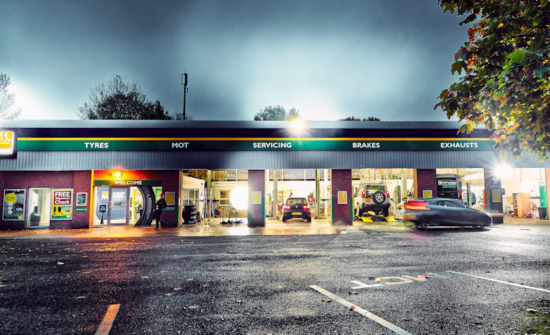Huge increase in Class 7 MOTs as van fleets run longer life cycles says ATS
 ATS has seen customers demand to keep their fleets on the road more than ever (Photo: ATS Euromaster)
ATS has seen customers demand to keep their fleets on the road more than ever (Photo: ATS Euromaster)
ATS Euromaster says it has seen a significant 216 per cent uplift in the requirement for Class 7 MOTs compared with 2020 as fleet managers adapt to longer commercial vehicle life cycles.
With the squeeze on new commercial vehicle availability as a result of the war in Ukraine combined with the shortage of semiconductors since 2020, fleet managers have been adapting fleet lifecycles by making their vans work longer before replacement. The Association of Fleet Professionals recently reported that its members were seeing extensions that ranged five to eight years before replacement.
As a result, fleet managers are needing to adapt their management of Service, Maintenance and Repair spend and manage MOT requirements.

- Tyres, wheels
- Brakes
- Horn
- Exhaust system
- Mirrors
- Doors
- Exhaust emissions
- Towbar
- Boot and tailgate
- Seats
- Vehicle structure
- Fuel system
- Seat belt SRS
- Steering and suspension
- Wipers, washers
- Windscreen
- Electrical component
- Lights
- Registration plate
- Bonnet
“We’ve been watching the MOT demand for Class 7 vehicles increase year on year, commented Mark Holland, operations director, ATS Euromaster.
“In 2021 we saw a 70 per cent uplift in MOT class 7 volumes compared with 2020 volumes. Then 2022 delivered an 86 per cent uplift on 2021 volumes. So demand has been growing at a staggering volume as the commercial vehicle fleet ages, but what we are also witnessing is changing attitudes to fleet management. For example, if a van comes in for new tyres, we may also be asked to do a vehicle health check at the same time to identify any areas of concern that might keep the vehicle off-road. It’s a typical example of fleet managers becoming more adept at running older and higher mileage vehicles.”
Latest Government figures2 show that nearly 40 per cent of Class 7 vehicles fail their MOT. Lamps, reflectors and electrical equipment lead the way as the most likely cause of failure (20.35 per cent), followed by brakes (15.41 per cent), then suspension (10.24 per cent).
In terms of the greatest percentage of dangerous defects, brakes at 44.58 per cent and tyres (35.79 per cent) were a long way ahead of any other defects.
“These figures correlate very closely with what we are seeing in our MOT bays,” continued Holland. “The vans are being worked extremely hard and with much of it final mile delivery work, this involves plenty of component sapping kerb bouncing.
“We would urge fleet managers, if they are not doing it already, to consider planned maintenance as vehicle replacement cycles lengthen to prevent the costliest item of all – a vehicle off road. A service such as our free digital vehicle health check can give you that valuable insight to help avoid that”
Class 7 vans are those commercial vehicles weighing between 3000-3500kg.

 Bridgestone
Bridgestone
Comments